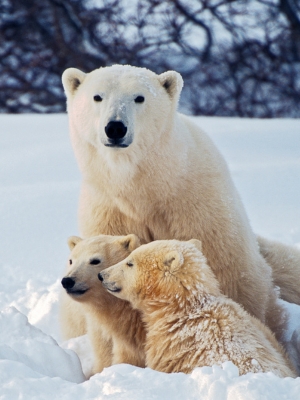Last month, national pharmacy and convenience store chain CVS decided to ban greeting cards that feature great apes demonstrating unnatural behaviors or illustrate them in harmful environments. Among others, these would include apes “smiling,” wearing clothing, and having physical contact with a human. Walgreens and Rite Aid have followed suit in supporting this ban, which will likely have a domino effect on major greeting card companies that produce cards featuring these images. With several companies participating in this ban, the number of images in circulation that show great apes in exploitative situations would decrease in public circulation. Researchers believe that this move may help to correct harmful beliefs surrounding great ape conservation efforts.
“Funny and Cute” Images of Apes Fuel Dangerous Misconceptions
What is the link between greeting cards and great ape conservation? Primatologist Steve Ross has published peer-reviewed articles in scientific journals on the topic. His findings indicate that showing images of great apes in unnatural situations leads people to think that these animals are not threatened in the wild and that they are not dangerous – two very disturbing misconceptions about all ape species. Additionally, the apes that pose for such cards are often forced to participate in cruel, exploitative practices that entirely neglect (and even suppress) their natural behaviors, including commercial or TV work, live entertainment shows, or as photo props. Many of these naturally social and complex apes will live their entire lives in too-small cages, alone, without interacting with another of their own kind for more than 50 years in captivity. Ross and colleagues estimate that there are about 100 chimpanzees kept as personal pets or performers in the United States.
Further, these images also function to perpetuate the exotic pet trade by depicting infant apes separated from their mothers years prematurely and falsely advertising the idea that apes can interact closely and safely with humans. The fact that great ape species remain threatened in the wild, yet popular culture continues to depict them in “comedy” photographs next to humans in office spaces, shopping malls, or with props such as tricycles, points to the disconnect between North American society and the natural world.
Perhaps one explanation for these severely mismatched priorities lies in the fact that, legally, human society ascribes little to no intrinsic value to great apes. Simply put, under the law, non-human animals are categorized as property, not as individual beings with rights. While great apes are offered some amount of protection from international trade by CITES and the Endangered Species Act, here in the United States, restrictions and appropriate protections are severely lacking despite apes’ still-dwindling wild populations and their inability to thrive in captivity.
Legal Changes Are Needed to Protect Primates
In addition to this newfound greeting card awareness, what we really need are legislative changes that outright ban private ownership of all primates. Currently, owning most primate species remains legal in over 60% of U.S. states. The Captive Primate Safety Act, introduced to Congress in the spring of 2021, would ban on the federal level the private ownership of and public interactions with most primate species. Until meaningful legislation like this is passed, we continue to put these animals and the public at serious risk. We also perpetuate the hollow and false mindset that these animals are not threatened in the wild and exist solely for our profit and entertainment.
Reach out to your lawmaker today to voice your support for the CPSA, which will function to improve the captive individual welfare and conservation status of primates. And, even if you have previously purchased greeting cards with harmful images of apes, refrain from buying these cards in the future and take steps to educate friends and family about their negative impact!
Keep Wildlife in the Wild,
Devan

 Dear Reader,
Dear Reader,